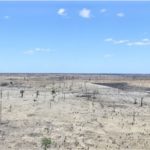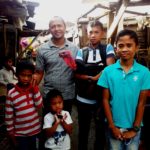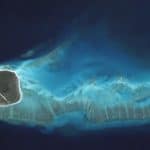The Makay Massif, new protected area in Madagascar
The Makay Massif is a protected area for biodiversity.
Makay is a sedimentary mountain barrier in southwestern Madagascar. The plateaus extend for almost 175 km between the River Tsiribihina in the north and the River Mangoky in the south, north of the Sandstone massif of Isalo. Its particular geography consists of sandstone plateaus crossed by deep gorges, which gives it a character that is difficult to penetrate.
The Makay Mountains, has been built as a natural fortress, preserves a unique biotope, and the richness of its Flora and fauna is extraordinary and still very little explored. The gigantic labyrinth certainly still harbors plants and animals that have not even been discovered.
A visit to the Makay is well deserved, very exhausting and difficult. The development of tourism in this massif is and remains confidential, only a few operators organize tours there.
Certainly the attraction of this treasure trove of biodiversity with its spectacular scenery is of great interest to travelers, conservationists, the media and opportunists alike. Difficult access, lack of accommodations, and the need to walk to key sites mean that Makay's natural isolation and relatively significant physical difficulties will continue to keep it protected.
Naturevolution Madagascar, official manager
The Makay Massif was classified as a new protected area by inter-ministerial decree in 2015, and the Association 
- The development of economic activities compatible with conservation objectives, with a participatory approach of the population and local communities;
- The development of sustainable and consistent tourism that respects natural and cultural resources.
This specific tourism approach must generate economic spin-offs at the local level. Aware of the many environmental, tourism and economic benefits for the region, NaturEvolution and its partners work together to support ecotourism development projects and further implement this form of responsible tourism.
Good Governance Charter
On June 23, 2017, all stakeholders concerned with the protection of the Makay Massif gathered around NaturEvolution Madagascar to undertake a general review of the main guidelines that define an inclusive approach to the protection and management of this reservoir of biodiversity.
Starting from 
The main interests of conservation and tourism stakeholders, as well as local people and communities, must join forces from now on and in the long term to design a model for the sustainable development of the Makay Massif. The basic objectives of the charter are to increase the interest and sense of responsibility and to improve the development and management of sustainable tourism.
For all these reasons, we are interested in these unique and responsible places and support the process of creating a new Makay protected area and its implementation. This meeting was about responsibly discussing the draft charter presented to us by Naturevolution. This charter has led to many constructive debates. The crucial points concern human resources (guides, porters, controllers), entrance fees, sensitive sites with acceptable impact parameters without compromising the ecological 
We have also dealt with the problems related to pseudo-guides and/or agencies and/or unofficial car rentals, which are completely outside the scope of the introduced approach, as well as the professional framework.
After the many reflections made on the texts, it was agreed that this draft charter should of course be further developed according to the realities and experiences in the field.













